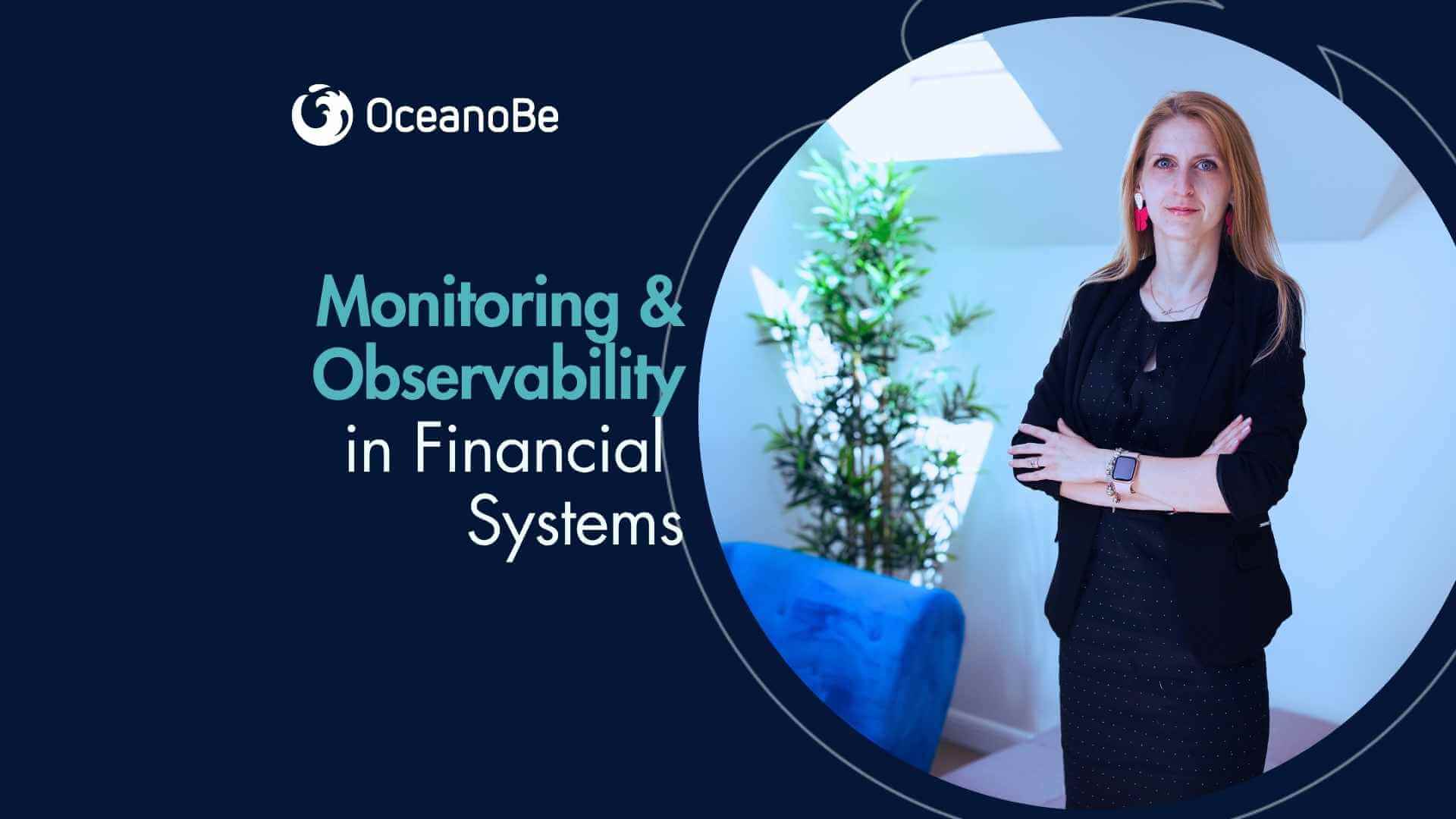Monitoring & Observability in Financial Systems
How banking platforms benefit from a modern observability stack using Kibana, Prometheus, Grafana, and OpenTelemetry
How banking platforms benefit from a modern observability stack using Kibana, Prometheus, Grafana, and OpenTelemetry

In modern financial systems, uptime and integrity are non-negotiable. Customers expect seamless digital banking experiences. Regulators demand accountability and traceability. And engineering teams are under pressure to deploy faster, scale smoothly, and react instantly to incidents. In this high-stakes environment, robust monitoring and observability aren’t optional—they’re foundational.
At OceanoBe, we work with high-scale fintech platforms where milliseconds can make or break trust. Here's how we approach observability and monitoring and an overview on the leading tools like Kibana, Prometheus, Grafana, and OpenTelemetry, tailored specifically for financial services.
While the terms are often used interchangeably, monitoring and observability serve different purposes. Monitoring is about tracking the system’s performance using pre-defined metrics and thresholds. Observability is the ability to ask arbitrary questions about the internal state of the system based on outputs like logs, traces, and metrics.
In financial systems, both are essential. Monitoring catches predictable issues (e.g., failed transactions > threshold). Observability lets teams investigate unpredictable or complex behavior—like latency spikes during cross-border settlements or race conditions in payment orchestration flows.
Prometheus is our go-to for metrics collection in fintech deployments. It’s lightweight, resilient, and integrates well with Kubernetes and service meshes used in microservices banking architectures.
Use cases in finance:
We configure Prometheus with Alertmanager and custom rule sets for Service-Level-Agreements (SLAs) that matter most—transaction success rate, fraud-check response time, and uptime for core banking APIs.
Grafana brings Prometheus (and other sources) to life with intuitive dashboards. Cients rely on Grafana to provide both engineering and business stakeholders with clear views of real-time system health.
How we use grafana:
Grafana’s templating and role-based access control allow us to tailor insights for operations, engineering, product, and compliance teams—all from the same source of truth.
Logs are often the first place developers and System Reliability Engineers (SREs) look when something breaks in production. In highly regulated fintech environments, logs also serve as audit trails.
Kibana, as part of the Elastic Stack, enables us to search, filter, and visualize massive volumes of structured and unstructured logs.
Why kibana works for financial systems:
Kibana also integrates easily with custom pipelines built via Logstash or Fluentd, giving us flexibility in structuring logs from various services and environments.
Microservices in fintech can span dozens of internal and external services—credit check APIs, KYC providers, AML engines, and transaction verification chains. OpenTelemetry helps capture the full context of a request as it flows across services.
The use of OpenTelemetry is to generate distributed traces and span data that help teams:
By integrating OpenTelemetry with backends like Jaeger or Grafana Tempo, we enable deep root cause analysis for both infrastructure and business-level events.
In finance, performance issues aren’t just technical problems—they’re business risks. Latency can cause transaction abandonment. Downtime erodes user trust. Silent data integrity failures can lead to regulatory fines.
At OceanoBe, we design observability architectures that not only help engineering teams respond faster, but also give compliance and risk stakeholders real-time visibility into operations.
By combining Prometheus, Grafana, Kibana, and OpenTelemetry, we build transparent, intelligent, and trustworthy systems that keep your fintech product online and your customers confident.
Let OceanoBe help you architect an observability stack tailored to your compliance, performance, and reliability needs.
Contact us to start building smarter systems!